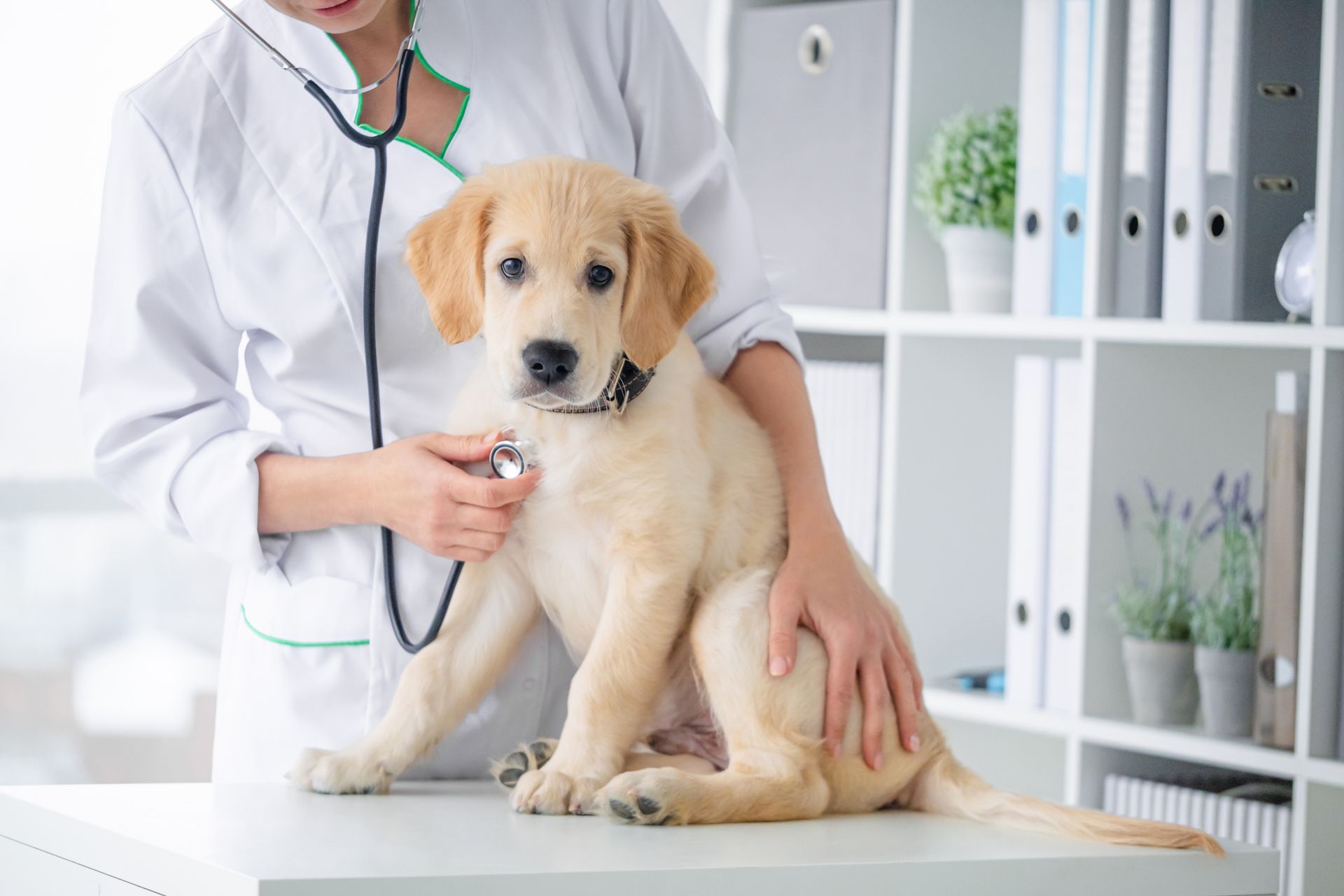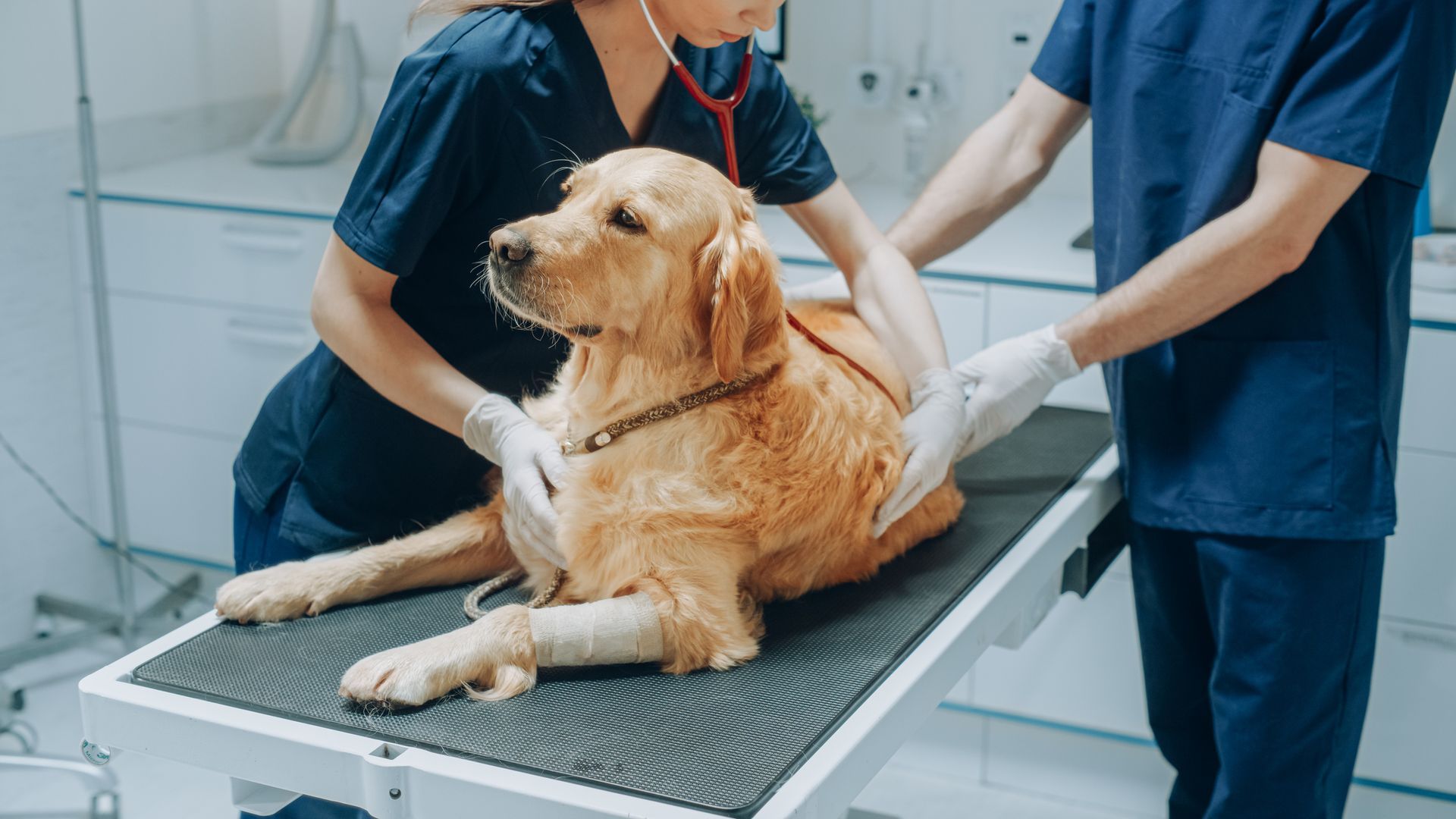Puppy's First Year: What Every Wellness Plan Should Include
Puppy's First Year: What Every Wellness Plan Should Include
Congratulations on welcoming a canine into your family. Getting a puppy is an exciting experience for family members of all ages. However, it's also a major responsibility. Puppies need appropriate care to ensure that they grow strong and remain healthy.
Puppies grow quickly, so it's best to prepare for your new family member's first year of life with a comprehensive wellness plan. Here's what you should include.
Physical Exam and First Set of Core Vaccinations
Most puppies come home to their new family at around six to eight weeks old. This is an ideal time to take your puppy in for a first veterinary visit. Remember, the longer you wait, the more you put your puppy at risk.
During the first visit, your puppy will get a physical exam to check that its skin, coat, eyes, ears, nose and mouth are healthy. The vet also will test your puppy's hearing and vision to make sure there are no problems.
Your new family member will also receive the first set of core vaccinations, which includes distemper, hepatitis, parvovirus and parainfluenza. These crucial vaccines will protect your puppy from common viral diseases that can cause serious illness and death.
Heartworm Prevention
Heartworm is a serious parasitic roundworm infection that spreads through mosquito bites. Risk varies depending on geographic location. Unfortunately, Tennessee is one of the top 10 states where heartworm is spread.
Because of this, your vet may recommend year-round heartworm prevention. This entails giving your pet medication once a month to prevent heartworm infection. In addition, your pet will undergo a heartworm test at annual vet visits.
Fleas and Ticks
Fleas and ticks are more than just bothersome mites and insects that cause itching. They can transmit parasites to your puppy, like tapeworms.
The good news is that fleas and ticks are easy to prevent. You'll find a wide variety of safe and effective flea and tick prevention products on the market. These products typically come in the form of liquid that you administer to your pet.
You'll apply the liquid directly to your puppy's skin, typically right between the shoulder blades. You'll need to part the fur to make sure you're applying it to the skin. From there the medication will spread naturally and keep your puppy protected.
Most flea and tick medication protects your pet for a month, while others last two or three months. Make sure to check the duration so you can keep on schedule. Missing doses means that your puppy isn't protected.
Second and Third Vaccinations
At 12 weeks old, your puppy will need a second set of core shots, which includes rabies and a booster for distemper. Your vet may also recommend a noncore vaccine for Lyme disease.
Rabies is a serious, often fatal viral illness that most commonly occurs in wild animals like skunks and raccoons. The vaccine will protect your pet in case they are bit by a rabid animal.
Lyme is another illness spread by ticks, and it's on the rise in canines. It's a year-round threat that causes joint swelling and other issues.
Additionally, at 16 weeks your puppy will need a third booster vaccine for distemper.
Six-Month Checkup
Plan to take your puppy in for a six-month checkup. Your vet will check on your puppy's overall growth, development and progress. In addition, your vet may schedule a neutering procedure.
While East Tennessee does not have a mandatory neuter ordinance, it is recommended that you neuter your pet at around six months. This is aimed at reducing the number of abandoned and euthanized pets.
Bringing home a new puppy is a rewarding experience. Appalachian Animal Hospital is here for your pet.







